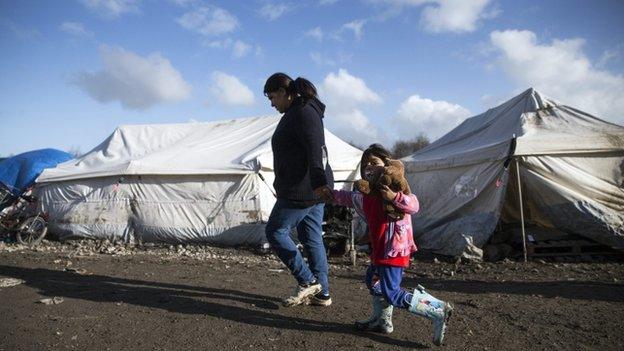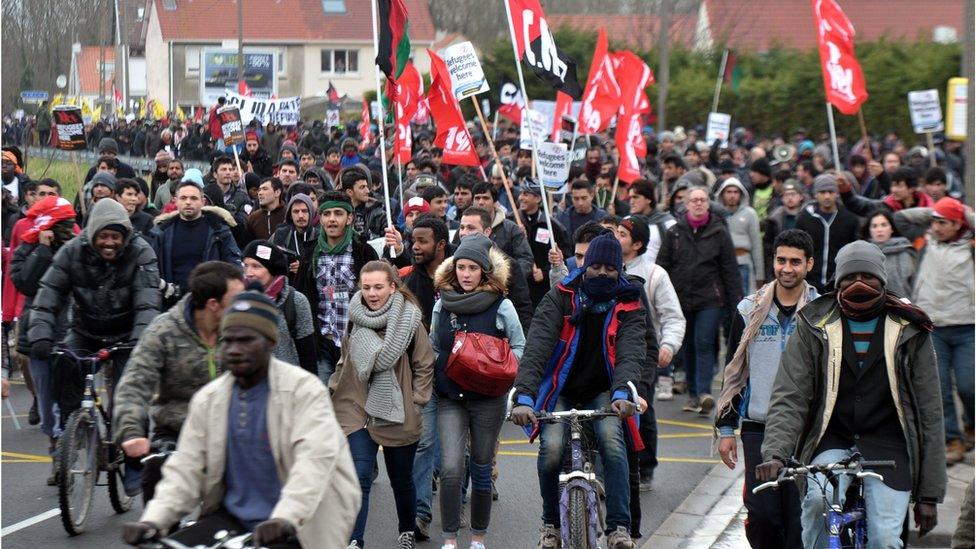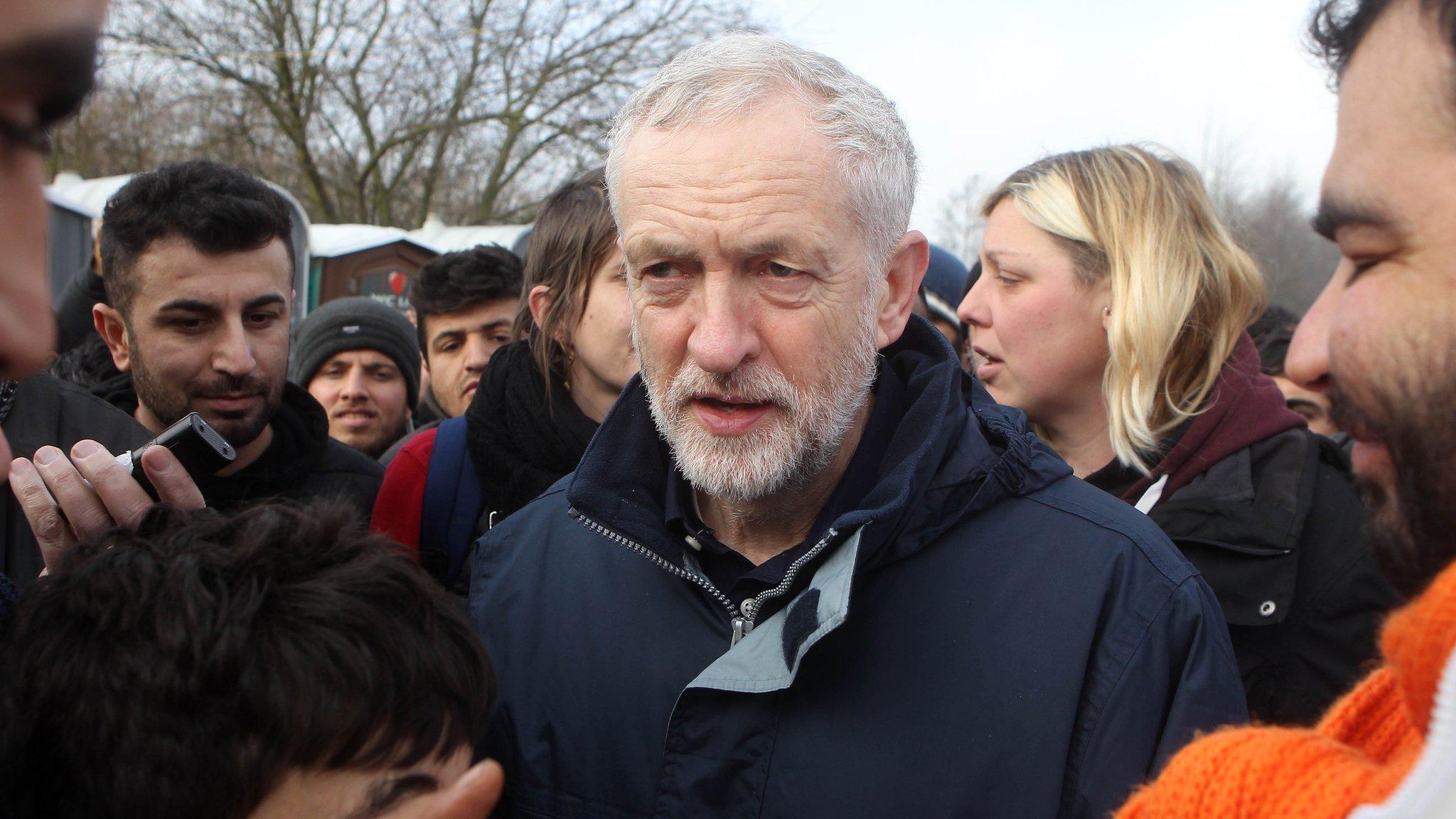Migrant children 'deteriorating' in Calais camp
- Published

Thousands of migrants are currently living in camps known as "the Jungle" on the edge of Calais in northern France.
The population of the camp has risen steadily in recent weeks to about 2,500, including about 250 children, according to medical volunteer group, Medecins Sans Frontieres (MSF).
Youth worker Liz Clegg has been working with women and children in "the Jungle" for several months.
She first visited the region to deliver camping equipment donated by festival goers at last year's Glastonbury Festival, but ended up staying to work with unaccompanied children aged between 10 and 13.
She told BBC News why she thinks it is important that the UK offer these children sanctuary.

"I work in a centre which was built for refugees by a group of volunteers from Ireland. The 10 to 13-year-olds that I work with are wonderful but they do have serious behavioural problems.
This is where the journey ends for many - and hope ends.
Children arrive with horrendous stories, but they are still full of life when they arrive. They stay here for three months and deteriorate, as they slowly come to realise that they may never get to Britain.
They are brainwashed that getting to the UK is the only thing that matters and that on their journey to the UK they must have nothing to do with authority and not get their pictures taken.
But these are children as young as 10. They are not capable of making this decision and they have no adults to help them.
We try to dissuade them from going onto the lorries, but it rarely works. These children are out every night trying to get to Britain. They come back cold, and tired and with no one to care for them.
I am seeing children crack.
Earlier this week one of the children was so upset that he was howling like a dog and fainting. He has no one here.
Another child, who was really chatty when he first arrived, is now unresponsive to anyone.
Some of the children pretend they are accompanied. They say they travelled here with an uncle, but after talking to them you soon realise that the uncle is normally an adult who they met on the journey rather than a blood relation.
When they get to Calais this adult often abandons them to get on a lorry to the UK.
The youngest child I have worked with is 10-years-old. He was separated from a family member on the journey from Afghanistan.
Most of the children in this age-group seem to come from Afghanistan but I've worked with Syrians, Kurds and children from Eritrea over the past few months.
I strongly believe that if we are going to take child protection seriously then we need to look at the children in Calais, and not just the camps around Syria. Especially the young ones.
They are little and miss their families and they have no one."
Interview by Hannah Henderson.
- Published23 January 2016

- Published23 January 2016
